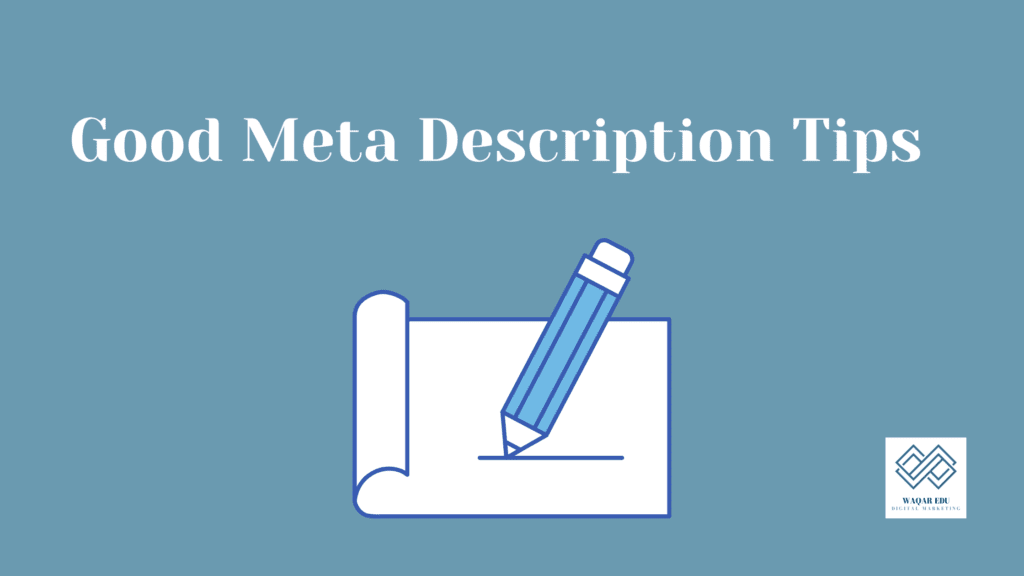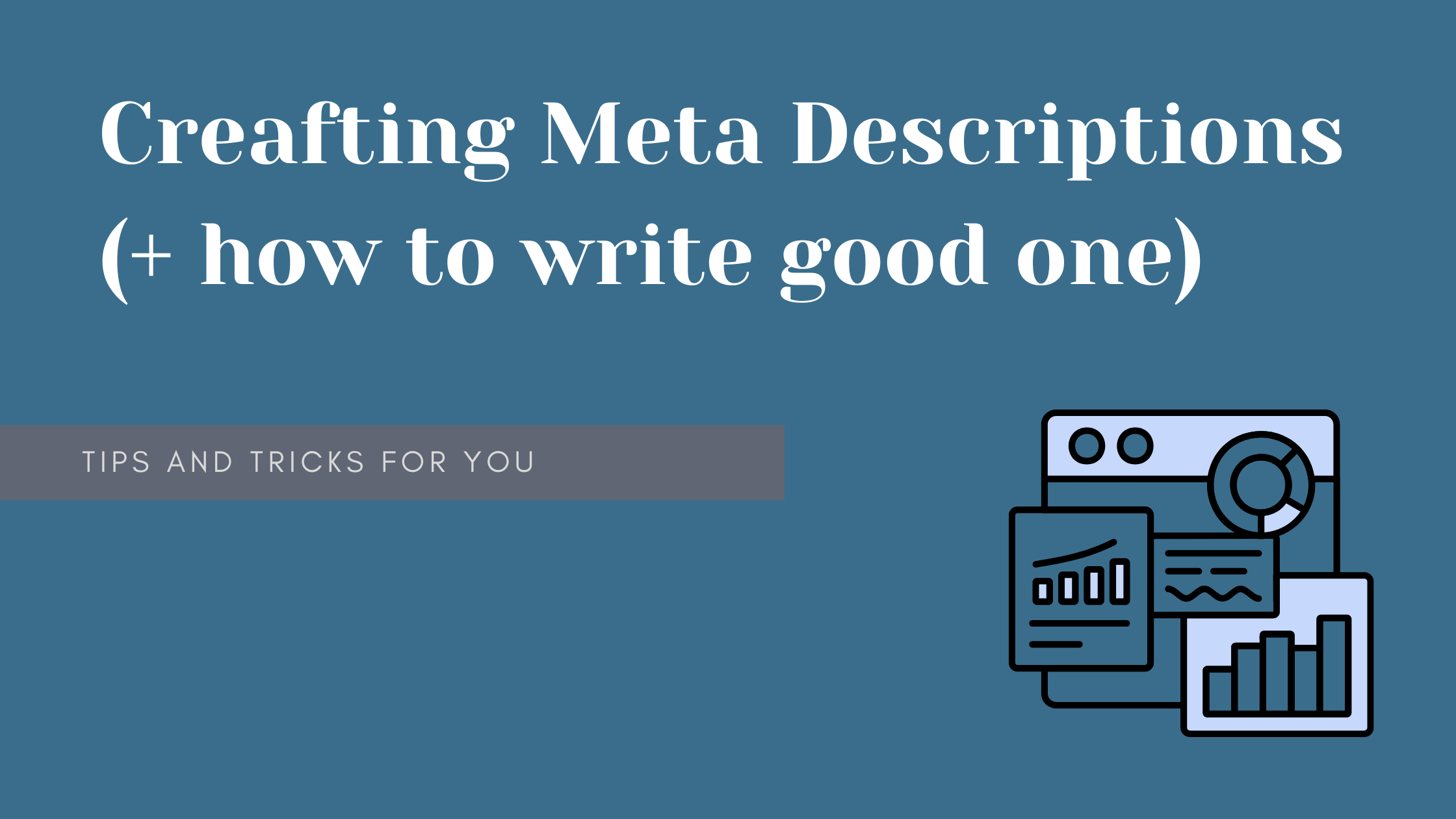What is Meta Description in SEO?
The meta description summarises your webpage content. It appears below the URL and title of the page in the SERPs (Search Engine Result Pages) and tells the user and search engine what this page is about.
While meta description does not directly affect a website’s ranking, it is an important SEO factor that can increase your CTR (Click-Through Rate).
How Description Shows to You?
Meta Description in Google’s SERPs

Search Preview in HTML

Google Rewrites Your Meta Description
Yes, Google some times indeed change your meta description
While you may carefully craft a meta description for your web page, Google often takes the liberty of rewriting it.
This is not an Issue!
This is done to provide users with the most relevant and informative snippet in search results. Google’s algorithm analyzes the content of your page, including headings, subheadings, and body text, to determine the most suitable description.
It may replace your original meta description if it finds a better match within your content.
Therefore, it’s essential to focus on creating high-quality, informative content that accurately reflects your page’s topic.
This Means:
The meta description is important that’s why Google is also considering it.
How Long Should a Meta Description Be?
However, it’s generally recommended to keep your meta descriptions concise and informative. Aim for a length that effectively conveys the main message of your page without being overly wordy. A good rule of thumb is to try to keep it within 150-160 characters but don’t be afraid to go slightly longer if necessary.
Is Meta Description Important For Each Page?
Yes, meta descriptions are important for each page. They serve as a summary that appears in search engine results, influencing whether users click on your link. A well-crafted meta description can boost your click-through rates by providing a compelling reason to visit your page.
Moreover, it helps search engines understand the content of your page, making it essential for SEO. In short, neglecting to optimize meta descriptions can mean missed opportunities for engagement and traffic.
What is an SEO Optimized Meta Description?
As you know about the meta description above.
SEO Optimized meta description is a summary that is designed using Google guidelines. It is about writing compelling descriptions to attract the user to click.
Tips For Good Meta Description
An optimized meta description includes these factors:
- Keyword Relevance
- Conciseness
- Compelling and Informative
- Uniqueness
- Call To Action
- Mobile-Friendliness
- Character Encoding
- Avoid Keyword Stuffing
Let’s discuss these factors for a minute.

1. Keyword Relevance
Keyword relevance is crucial for ensuring that your content aligns with what your audience is searching for. It involves using keywords related to your page’s content, which can enhance your rankings on search engines. However, relevant keywords don’t always have to be exact matches.
Example: If your page is about “organic gardening,” relevant keywords might include “sustainable gardening practices” or “eco-friendly gardening tips.” These variations help capture a broader audience while still targeting specific interests.
2. Conciseness
Keeping your meta description between 150-160 characters is essential for clarity. This range helps ensure that your description is fully displayed in search results without being cut off.
Example: “Discover the secrets to successful organic gardening with our easy tips and tricks for beginners!” This concise description delivers a clear message while remaining within character limits, encouraging potential visitors to click.
3. Compelling and Informative
A good meta description should provide a brief yet informative summary that entices users to click. It should convey the value of the content succinctly.
Example: “Learn how to create a lush, organic garden in your backyard with our step-by-step guide!” This description not only informs but also compels users by highlighting the benefit of learning through the guide.
4. Uniqueness
Crafting unique meta descriptions for each page helps avoid duplication and boosts SEO. Search engines favor original content, and unique descriptions improve the chances of standing out in search results.
Example: For a page about composting, you might use, “Transform kitchen scraps into nutrient-rich compost with our easy guide!” This is unique compared to your main gardening page and caters to a different aspect of organic gardening.
5. Call to Action
A strong call to action (CTA) in your meta description can drive user engagement. Phrases like “Learn more,” “Discover now,” or “Shop today” encourage clicks.
Example: “Start your journey to a greener home! Learn organic gardening tips today!” This CTA invites users to take action, making them more likely to engage with your content.
6. Mobile-Friendliness
With many users browsing on mobile devices, optimizing your meta descriptions for mobile is critical. They should be concise and convey important information quickly.
Example: “Join the organic gardening movement with our top 10 tips!” This description is brief and to the point, making it ideal for mobile users who may not want to read long texts.
7. Character Encoding
Proper character encoding ensures that your meta descriptions display correctly across different platforms, avoiding issues with special characters.
Example: Using HTML character codes for special characters prevents display issues. Ensuring correct encoding avoids confusion for users and maintains professionalism.
8. Avoid Keyword Stuffing
While including relevant keywords is important, keyword stuffing can harm your SEO efforts. It’s crucial to use keywords naturally within the context of the description.
Example: Instead of writing, “Organic gardening tips, best organic gardening tips, organic gardening guide,” you might write, “Explore our comprehensive guide filled with organic gardening tips for a flourishing garden!” This approach naturally integrates the keyword without overloading the description.
This Guide helps you to understand the advanced SEO: 20 Advanced SEO Techniques in 2024
Tools For Meta Description
1. Site Audit Tools
Utilize site audit tools to identify missing, duplicate, or poorly optimized meta descriptions. Tools like SEMrush or Ahrefs can help you conduct thorough checks, ensuring every page has a unique and engaging description that reflects your content accurately.
2. On-Page SEO Analyzers
Employ on-page SEO checkers to assess whether Google is rewriting your meta descriptions. Tools like Moz Pro can provide insights into the effectiveness of your current meta tags and suggest improvements.
3. Competitor Analysis Tools
Leverage tools like SEMrush’s Keyword Overview to analyze competitor snippets. Understanding what works for others can guide you in crafting compelling descriptions that stand out in search results.
4. A/B Testing Tools
Use A/B testing platforms, such as SplitSignal or Optimizely, to experiment with different meta descriptions. You can determine which variations resonate best with your audience by analysing click-through rates.
5. SERP Preview Tools
Tools like To The Web’s SERP Preview allow you to visualize how your meta descriptions will appear in search results. This can help you ensure that your descriptions are within the ideal character count and optimized for visibility.
6. Performance Tracking Tools
Integrate tools like Google Analytics to monitor how changes to your meta descriptions affect organic traffic. Tracking engagement metrics can provide insights into the effectiveness of your descriptions over time.
7. Writing Assistants
Consider using writing assistants like Grammarly or Hemingway to enhance the clarity and readability of your meta descriptions. Well-written descriptions can improve user engagement and CTR.
Best Practices
To enhance your meta descriptions effectively, consider leveraging a robust SEO tool like Semrush and other tools. With a free account, you can unlock a suite of features designed to optimize your website’s performance.
Here’s what you can do:
- Conduct Comprehensive Audits: Identify and resolve any On-page SEO issues hindering your site’s visibility.
- Optimize Content with Insights: Receive tailored recommendations to refine your content and boost its appeal.
- Analyze Competitors: Gain insights into your competitors’ strategies, allowing you to tailor your approach.
- Explore Keyword Opportunities: Discover high-performing keywords to incorporate into your meta descriptions for improved search rankings.
Elevate your SEO game today!
FAQS
A meta description is a summary of a webpage that appears in search engine results, helping users understand the page content.
Ideally, a meta description should be between 150-160 characters to avoid being cut off in search results.
While meta descriptions don’t directly affect rankings, a well-crafted one can improve click-through rates (CTR).
Yes, Google may rewrite your meta description if it doesn’t match user search intent or page content.


Leave a Reply